Through the collective energy of our Peace Corps community, we aim to raise funds and awareness around the continued global social impact of our members. Whether it’s continuing a project that was started during Peace Corps service or working with an organization after service to implement an international sustainable development project, NPCA’s Community Fund is meant to provide financial support through grants so our members can continue to make a difference. By providing funding opportunities, NPCA also provides a platform to create awareness around the continued work of our members, building a network of changemakers that embodies the ideals of the Peace Corps through international service beyond Peace Corps service.
The projects listed below by former Volunteers are independent of the Peace Corps and funded by NPCA’s Community Fund. The Peace Corps has no responsibility for donations to NPCA or the projects conducted by former Volunteers. As of March 15, 2020, the Peace Corps has temporarily suspended all Volunteer activities overseas. To learn more about how our Community Fund grantmaking works, please read our FAQs.
NPCA invests 85 percent of the total donations directly to support this project and 15 percent where needed most to support service administration and our overall mission.
Support the Continued Service of Returned Peace Corps Volunteers
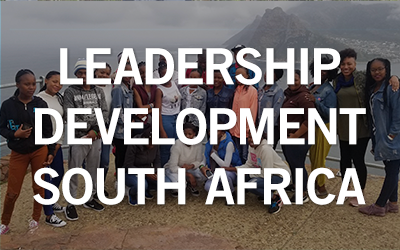
I Am, We Are
The Morafe Leadership Development Programme is a project of I Am, We Are (IAWA). Founded in 2015 by Returned Peace Corps Volunteer Meisha Lerato Robinson (Benin 2000–02 and South Africa 2012) in her Peace Corps Response community, IAWA is a U.S.– and South Africa–registered nonprofit organization that strives to empower youth of African descent with the tools to confidently own their futures. IAWA employs an adaptive socio-ecological model that enables youth to be instruments and agents of their own development while ensuring their environment is a positive, secure space that supports their universal well-being. The organization is dedicated to creating a world where all youth are socially engaged, globally aware, and economically free.
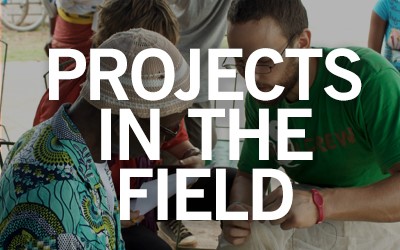
Community Fund Projects in the Field
If you are interested in increasing the Peace Corps community’s global development impact, but don’t see a specific project you want to support, consider donating to the Community Fund Projects in the Field campaign, this allows NPCA to identify projects most in need and direct funds where we can make the most impact.
NPCA invests 85% of the donation directly to support RPCVs and 15% where needed most to support our overall mission.
Funded Projects
The projects below have been fully funded through the generous support of our members!
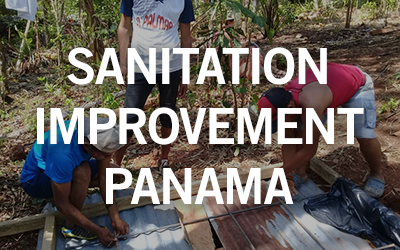
Jenna O’Brien
Donations designated for Sanitation Improvement in the Comarca Ngäbe-Buglé, Panamá will be used to construct 31 pit latrines in the Indigenous communities of Quebrada Cianca and Cerro Pita in Panamá. These communities were awarded a Peace Corps Partnership Program grant in 2020, in collaboration with Peace Corps Volunteer Jenna O’Brien, but the award was suspended when all Volunteers were evacuated in 2020 due to COVID-19.
The project seeks to bolster the capacity of community groups and households to locally construct pit latrines. The construction of 31 pit latrines will improve safety and sanitation in the communities. The project also enables the latrine committees to exercise their project management and organizational skills.
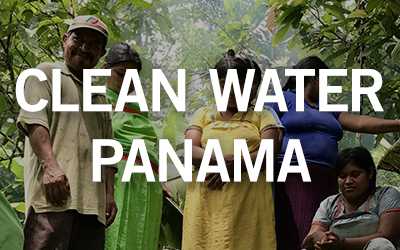
Rebecca Kaufman
RPCV Rebecca Kaufman and community members in Alto Mancreek, Ño Kribö, Panamá designed a community development project that will construct a gravity fed aqueduct within this rural community. This system will bring fresh water to 130 community members and provide a learning opportunity as community members will be trained to construct and maintain the water system. In partnership with NPCA partner Water Charity, funds raised by NPCA will be matched by Water Charity to support this project.
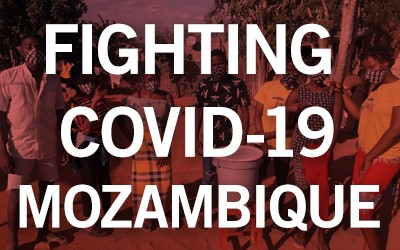
Krista Morine
Donations designated for Tenha Esperança, Unidos Vencemos o Coronavírus – Have Hope, Together We Fight COVID-19 will be used to create sustainable change in the health and personal hygiene of the residences of Nacarôa regarding COVID-19 and to educate them on the importance of social distancing, proper handwashing and coughing techniques, and staying home whenever possible. We have an overall goal of distributing 4,000 bars of soap and 4,000 face masks along with informational cards on preventative measures and proper cleaning techniques to market vendors (because social distancing is not feasible) and to HIV positive residents and their families. It encourages the recipients to use the masks daily while around others. For those who do not receive the masks, there will be informational lectures on how to create face masks with regular household items.
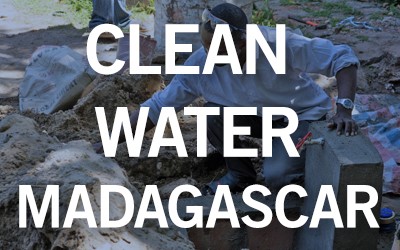
Gabriel Sandler
In Madagascar, by taking advantage of large roof structures on school complexes, communities can benefit from rain catchment systems that harvest rainwater and provide clean water for students and community members. In collaboration with a local social enterprise called Tatriano, this project will help a community install two rain harvesters at two schools in southeast Madagascar. These rain harvesters are simple yet durable and do more than provide clean water for students and their families. They are job creators, educational opportunities, and models for the community. In addition to providing clean water, this project also provides access to educators who teach about WASH (water, sanitation, and hygiene) to maximize the benefits of this new resource. This project will directly benefit 756 students everyday they are at school and up to 360 people in the community.
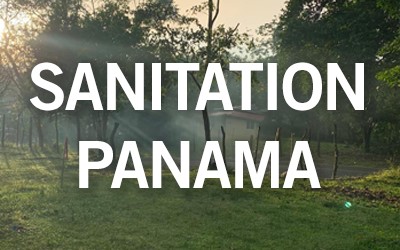
Andrea Ramirez
Andrea Ramirez and colleagues in Panamá developed a project to improve sanitation in the indigenous community of Llano Junco. They were awarded a Peace Corps Partnership Program grant, but that was suspended when Volunteers were evacuated in March. The project seeks to bolster the capacity of community groups and households to locally build, repair, and maintain appropriate sanitation systems and to empower and motivate individuals to adopt healthy water, sanitation, and hygiene practices and behaviors. With your support, this project can still become reality.
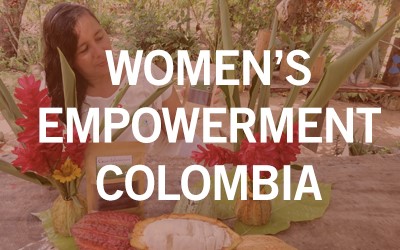
Elyse Magen
“I would like to thank everyone who was able to contribute to the fundraising campaign ‘Economic Empowerment of Women in Colombia.’ Investing in women not only promotes gender equity but also strengthens economies. The campaign funding will be used to support a chocolate dessert business called “Transformación,” which is run by members of a farming collective. The farming collective finds both national and international markets to sell the cacao grown by its members. The campaign funds will be used to improve their workspace and purchase machinery to make edible chocolate, which is a more desired good in the market they are selling to and will allow them to increase their profit margins.” – Elyse Magen
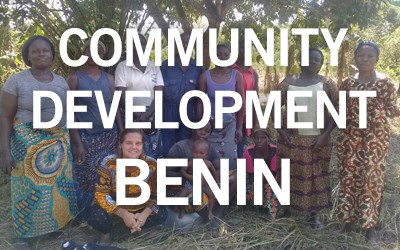
Annie Matthews
During the dry season, staples of the Beninese diet, such as tomatoes, okra, and greens, become scarce and expensive. Last year, Annie and her counterpart learned of underutilized land in the village with a current of water running through it, owned by a local school director. A small cooperative of gardeners was formed and the director graciously agreed to loan them the land, free of charge, and signed a renewable contract. The small co-op of mostly women set to work to clear the space, dig beds, plant vegetables, and water their plots. The current water source at is a small man-made watering hole that is dug deeper throughout the year as it dries up. It is difficult to maintain and often runs dry in the evenings. This project will build a well at the community garden in the village of Ikémon to allow both the garden and the co-op to continue to grow and stabilize as a year round source of nutrition and income.
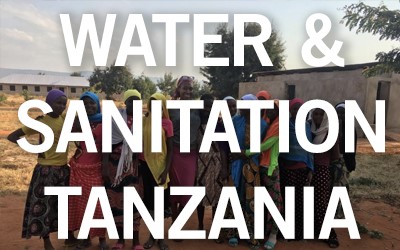
Katherine Patterson
This project will implement a rainwater catchment system at Bumbuta Secondary in order to collect and store rainwater throughout the year and hand washing stations. Currently, there is no water source at the Secondary School for hand washing, bathrooms, cooking or the proposed school garden. The students carry large containers of water to school everyday creating hardship. The goal is to increase access to clean water within the school community, including People Living with HIV (PLHIV) and increase good hygiene or Water, Sanitation and Hygiene (WASH) practices.
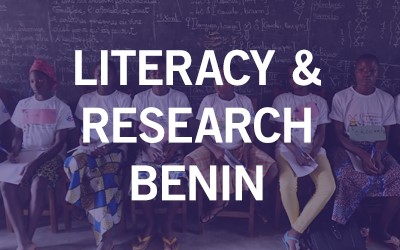
Cristal Ouedraogo
In Benin, women and girls have lower educational attainment and more barriers to education than men and boys. A literacy and research center will create a safe space for girls to pursue academic excellence and increase high performance rates amongst girls. Additionally, these funds will help renovate and furnish a dilapidated school room so that it can serve as a literacy and research center for approximately 500 secondary school students in need, including young female learners.
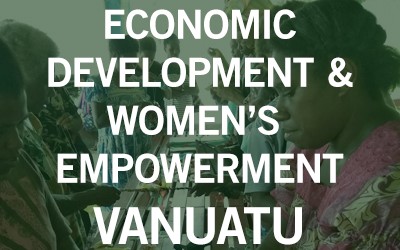
Chelsea Bajek
This project supports the economic development and empowerment of women and girls through skill-building workshops. The grant funds will be used to purchase sewing machines and related materials to facilitate a series of by-monthly skill-building workshops to teach women and girls on the island how to make various handicrafts, such as clothing and baskets, which can be sold to help pay school fees and support families. This project will increase opportunities for women and girls, helping them to become more financially independent and empowered.
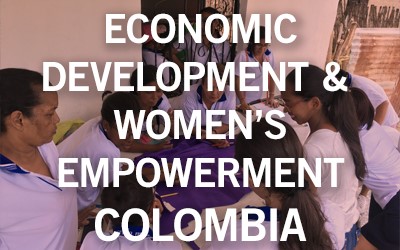
Joshua Concannon
This project has two goals: to provide sources of income for dozens of women and their families in a small community called Santa Rosa on the Caribbean Coast of Colombia, and to diversify the local economy through the creation of jobs in the clothing and design industry. The money raised will go directly towards opening up the classes and workshop for women, specifically for the machines necessary in clothing production. The classes will be directed by professionals from a local technical school partnering in the project. They will be supplemented by entrepreneurship and business management lectures from leaders in the community and surrounding towns, the knowledge from which would be used to open up a workshop to commercialize the products they make throughout the classes.
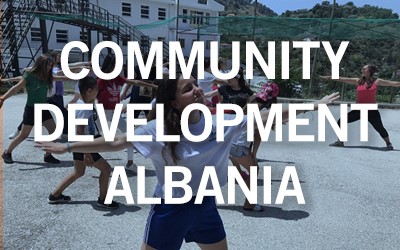
Carolyn O’Brien
The main goal of this project is to improve the physical, mental, and social wellbeing of the community, especially women and girls, through participation in regular physical activity. This project aims to create opportunity for students to participate in not only in traditional sports such as basketball and volleyball, but new forms such as aerobics and yoga. Kosta Ҫavo was recently selected as “School as a Community Center.” This title means that the school remains open in the afternoon to the community and having a functional and safe work-out space.
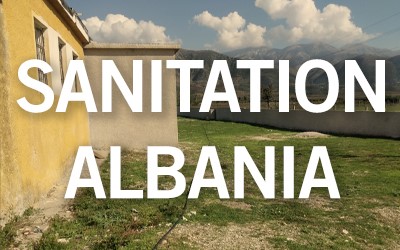
Colin O’Brien
The small village of Bajkaj in southern Albania is home to 60 children ages K-8. The Bajkaj village school has five rooms that each of the grades share in shifts. The school currently does not have a functioning bathroom. This project will be used to remodel and repair the bathroom facilities. The remodel will provide functioning toilets, doors that shut, running water, and will help educate the school and community about hygiene, puberty, and sanitation. These efforts were designed to help make students and staff, especially females, feel more comfortable and safe using the facilities, so that they do not have to leave the school premises and will reduce the number of absences from school.
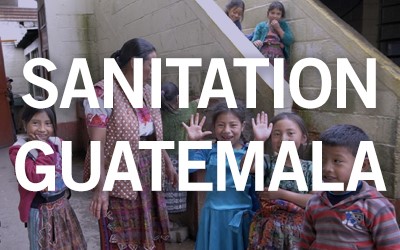
Alex Brenner
While serving as a volunteer in Guatemala, and with the help of the educational community, evacuted RPCV Alex conducted an assessment to determine which schools were in best or worst condition with regards to sanitation and hygiene. Two elementary schools in the rural village of Nimasac scored the lowest due to lack of assistance from the local government. Donations to this project will be used to cover the installation of doors at the entrance of each bathroom stall and at the storage room of the already built bathroom facility at an elementary school in San Andres Xecul, Guatemala.
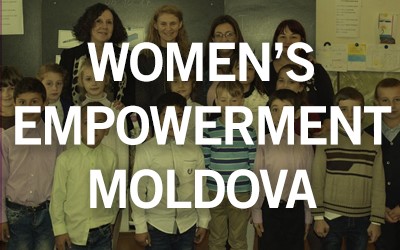
Alyssa Gurkas
In Moldova, rates of violence against women are unfortunately high. In efforts to combat violence against women and empower the female population within a small town in Moldova, this project will create a community space and will include seminars on promotion of gender tolerance, diversity, and empower the female faculty from middle school “Mihai Viteazul”. These funds will also enable the faculty to improve their technology skills through weekly trainings and 4 seminars including Digital Tools in the Classroom, Modern Methods of learning, and teaching.
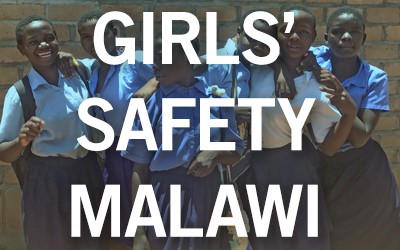
Lydia Babcock
In Malawi, girls are disproportionately affected by gender-based violence which then creates overwhelming disparities in regards to both educational attainment and health outcomes on the basis of sex. Donations to this campaign will be used to provide a security gate, window bars, bed nets, and mattresses to 60 girls living in the Girls Hostel in Enukweni, a small community located in the Northern region of Malawi. A donation of $8.16 will provide one girl with one bed net to prevent malaria and a donation of $59.86 will provide one girl with a bed net and a mattress.
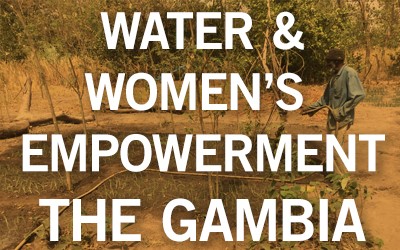
Natalie Mango
Deforestation and declining soil quality are common throughout The Gambia due to removal of wood for cooking and extensive clearing of land for farming. This project will construct a system of underground pipes and tap-fed concrete reservoirs that distribute water throughout a community tree nursery and women’s garden. The tree nursery/garden was started in the village of Darsilami by the Association for Food and Environmental Security (AFES), a community-based organization which formed as a response to environmental challenges in the area.
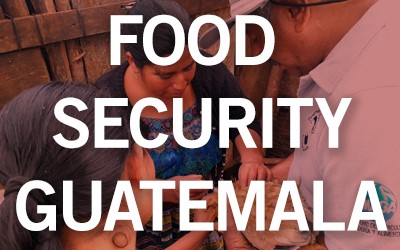
Will Penner
In Guatemala, primary schools throughout the country are required by the School Food Law to purchase ingredients for school lunches from local farms. However, many schools still buy imported products, such as eggs, from convenience stores because few local farmers have the capacity to sell food products year-round. While serving as a Rural Extension Volunteer in Guatemala, evacuated RPCV Will Penner collaborated with three local partners from Guatemala’s Ministry of Agriculture and a group of 14 women farmers whose came up with the idea to form an association. Together they established community-wide bird vaccination campaigns and farmer-to-farmer training on improved hen-house management practices.
Interested in receiving support from NPCA to fund a project?
We’re seeking proposals from Returned Peace Corps Volunteers, former Peace Corps staff, and affiliate groups for small projects that contribute to amplifying the Peace Corps community’s global social impact. Through small grants, NPCA’s Community Fund supports community-based projects that make global giving more efficient, transparent, and effective. The Community Fund supports projects both internationally and in the United States in a variety of sectors. Projects are funded primarily through crowdsourced contributions, and may be eligible for supplemental funding from NPCA on a case-by-case basis. In our commitment to support communities of color, priority funding is available for projects that focus on diversity, equity, and inclusion, inclusive of minority-owned startup enterprises and initiatives that advance racial justice.